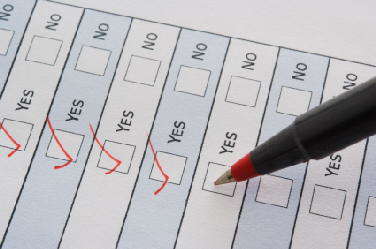Recent Articles
Popular Makes
Body Types
Used Car Buying FAQs

It can be difficult to first venture into the used car market. The responsibility is on the buyer to make all the decisions and making the wrong one can be expensive. The more information you learn and the more research you complete the better the chance you will have to find yourself a good used vehicle at a good price. After you have searched around and found what appears to be a good-looking vehicle at a reasonable price, remember to ask many questions. Consider asking: • Why are you selling your car? - Most people sell their vehicle because they are buying a new one. Why? Is this one no longer reliable? • How long have you owned the vehicle? - If they haven't owned it for long, then why are they selling it so quickly? Do they know the history of the vehicle? • Does the vehicle need any repairs? You want to know about any all work that might need to be done. Although, asking the question doesn't guarantee getting the right answer. What the seller does say will help you to determine if the price he is asking is in the ballpark. If you think it might be close then you can try to negotiate the cost of the repairs out from the asking price. • How any miles are on the car? Again, just asking won't guarantee getting the truth if the seller has tampered with the odometer. However, what you are wanting is to find a vehicle with the lowest mileage. If a vehicle has more miles on its odometer than 12,000 – 18,000 for every year that it is old then you should keep looking. This means if the vehicle is 2 years old, then it shouldn't have any more than 30,000 miles on it. Look carefully at the odometer to make sure the numbers are properly aligned. If they aren't, it could be that the odometer has bee tampered with. • Ask if the vehicle has been in any accidents. If it has, be sure to get as many details as possible to ascertain the extent of possible damage. • Ask to see the documentation, like the registration papers. Then check the model, make, vehicle identification number (VIN) and engine number against the papers. If the VIN number doesn't match the registration papers then the vehicle could be stolen. Make sure that the registration is current and not about to expire. • Ask the seller for his address, phone number etc, and match the information against the registration papers. • Ask for the service history on the car so that you can see what kind of care the seller has put into the vehicle. • Ask the seller if there are any outstanding loans, liens, or any other finances still owing on the vehicle. • Ask for all the keys and not just the master key. These can be expensive to replace and besides you don't want any spare copies out there for anyone to just come and drive away with your car using their keys. • Is there an Extended Warranty available? • Ask any and all other questions that you feel you need to. Don't be satisfied with only half answers.
Be safe and be careful. Before buying the car, make sure you: • Get a history record check to make sure the vehicle has not been in any major accidents. • Always have an honest mechanic look over the vehicle and give you an estimate of any probable repair work. • Consider getting an Extended Warranty on the vehicle. • Have your finances in order before you make a deal. • Be absolutely sure that this is the vehicle for you because there is no going back once the deal is made. If anything in the seller's answers makes you feel uncomfortable, then walk away.